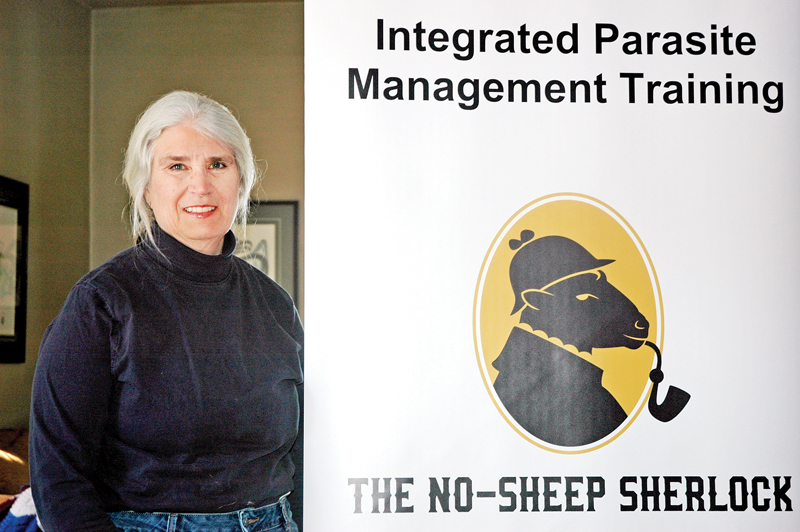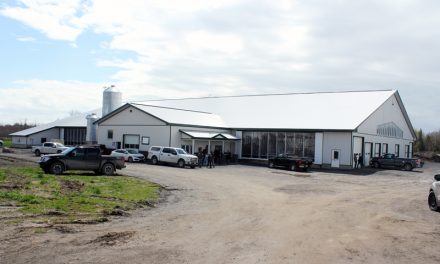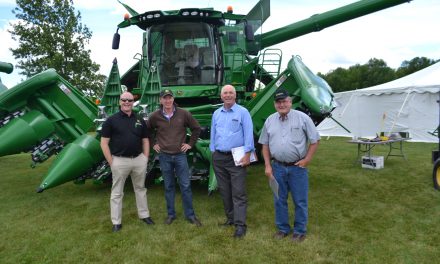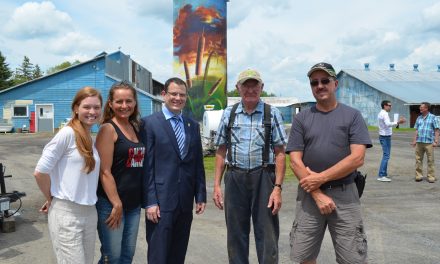Finding a cause
Laurie Maus is behind the new No-Sheep Sherlock business that will investigate the cause of death and disease to ruminants by parasites. Courtesy photo
DUNVEGAN – The No-Sheep Sherlock is a new business that intends to get to the bottom – literally – of death and disease caused to ruminants by parasites which are increasingly building resistance to control products.
The Sherlockian investigator in this case is Dunvegan’s Laurie Maus, a former research scientist who taught lab courses at three universities, a past teacher, consultant, government regulator, Canadian horse breeder and self-described “policy wonk”.
The No-Sheep reference is to the fact that Maus and husband Robert are dispersing their flock of Tunis sheep after a dozen years. During that time, Maus has become one of eastern Ontario’s most prominent lamb and wool promoters who has lobbied for introduction of rare breeds into prison farm programs, greater marketing of local fleeces, and a regional wool tour.
She was appalled to learn from shepherds how many sheep they lost yearly because of parasites to which small ruminants are particularly vulnerable. Something needed to be done. A past chair of District 10 of Ontario Sheep Farmers, she was first approached to run fecal egg counting workshops in the west end of the province.
“As I started to book the workshops, I had many producers from all over Ontario requesting training,” Maus explained. “Demand was more than I was able to meet.”
A winner of the District 10 Appreciation Award, she approached OSF for help and five regional workshops were held featuring Dr. Rex Crawford and Dr. Emma Borkowski relying on Maus’ materials while she ran courses east of Kingston; currently, there’s a waiting list for future classes.
Her ultimate goal is to never have another sheep in Ontario die due to parasites and to train herself out of a job. Not only is it a huge economic burden to producers, it’s also an animal welfare issue.
“I decided to change the approach to training from listening to lectures to hands-on. I wanted to give farmers control. Most producers focus on sheep death and disease caused by parasites, but the real cost is in lost productivity.”
Maus’ breed of choice has been the Tunis. As she departs the production end, Maus is happy to report that the Tunis has moved off the Rare Breeds Canada critical list with under 35 registered females, to 90 registered including hers; there are some 1475 Tunis’ registered across North America.
“In my opinion, this isn’t recovery for recovery sake as this breed has a lot to contribute to the industry,” she said; adding that it’s her last lambing season, a bittersweet decision but the right one. “Just a few non-breeding pets will be left to keep our dogs employed.”
To gain the necessary expertise, Maus tested her own flock for seven years, modifying animal and pasture management for greater control of parasites. She had previous experience working with a herd of 17 Canadian horses: “Treatment costs were prohibitive so I dusted off my lab skills, trained myself and started testing.”
“Our lamb growth rates have increased, our treatment costs have decreased, and the parasite burden has dramatically declined. For the past three years, our lamb crop reached market weight without needing to be treated for major worms. Unfortunately, this isn’t the norm on Ontario sheep farms.”













